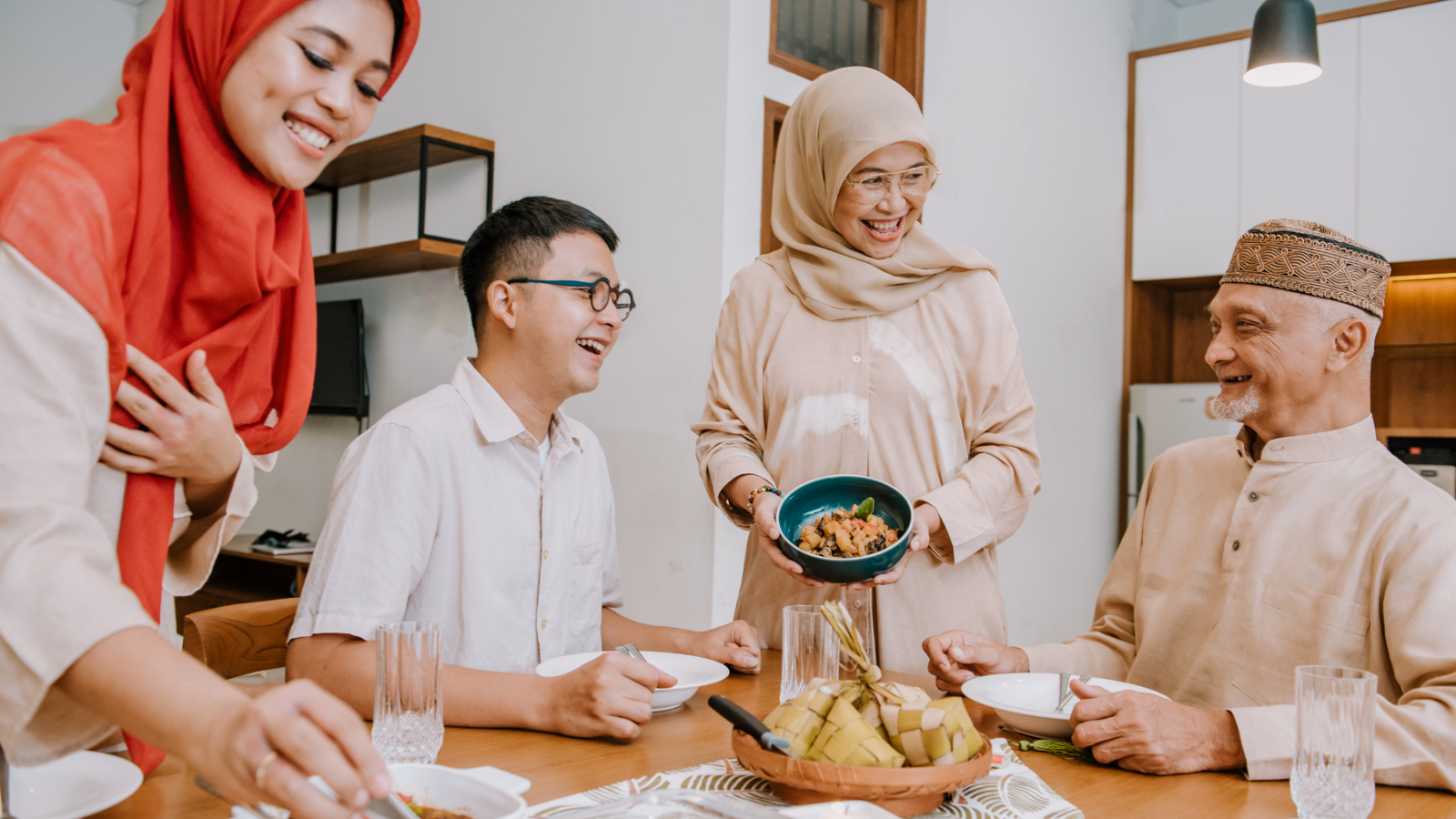Wrapping up Ramadan, Muslims around the world will soon celebrate Eid al-Fitr this early May. Inclusion Consultant Giasinta Livia spoke with Kurdiyan and Ryan Haryo Setyawan, two Muslim Master’s students from Indonesia who will celebrate Eid al-Fitr 7,000 miles away from home this year.

Ryan Haryo Setyawan, MSc Nutrition and Food Sciences student (right) and Kurdiyan, MSc Applied Meteorology and Climate with Management student (left) will be celebrating Eid away from home this year.
Eid al-Fitr is one of Islam’s largest holy festivals, marking the end of the fasting month. In Indonesia, the largest Muslim country in the world, Eid al-Fitr is celebrated splendidly with traditions such as mudik (annual mass homebound exodus), takbiran (motorbikes convoy and lighting firecrackers to mark the end of Ramadan), and halal bihalal (asking and giving forgiveness). The festivities will not be complete without eating the renowned Eid delicacies, including ketupat (rice cake), rendang (Indonesian-style beef curry with coconut milk and lemongrass), opor ayam (chicken cooked in coconut milk), kue kering (cookies), and many more.
“For me, Eid al-Fitr is a ‘victory day’ to conclude one challenging month of fasting. Similar to a graduation ceremony held when students finish all the exams and assignments at the university, Eid feels like a graduation for me. Especially in the UK, where we have to fast for approximately 16 hours a day” shared Kurdiyan, MSc Applied Meteorology and Climate with Management student.
More than a religious holiday, Eid al-Fitr has become an important cultural tradition in Indonesia. In a country where 24% of the urban population are migrants (World Bank, 2013), Eid is the momentum for mudik, the mass mobilisation where around 25 million migrants return to their hometowns to celebrate the holy day with their big families.
“During mudik, my family used to take a 10-hour car trip from Jakarta to Kutoharjo, Central Java, Indonesia. When thousands and even millions of people are travelling at the same time, of course, roads and public transport will be packed. Yet mudik is truly inseparable from Eid, and people are willing to make these sacrifices to reunite with their families,” said Ryan, MSc Nutrition and Food Sciences student.
Due to the COVID-19 social restrictions, Kurdiyan and Ryan have not travelled for mudik in the last two years. This year, the Indonesian government has finally allowed people to mudik and hold mass prayers following the easing of restrictions. However, Kurdiyan and Ryan decide to stay in Reading during Eid al-Fitr since they only do a one-year Master’s course.

Some Indonesian special Eid al-Fitr delicacies include ketupat (rice cake), rendang (Indonesian-style beef curry with coconut milk and lemongrass), and opor ayam (chicken cooked in coconut milk).
What will they miss the most from the Eid festivities back home?
“My mom has a small catering business. Since we received many orders for Eid, my family and I used to help her bake some sweets and cookies, like nastar (round-shaped cake with pineapple jam filling), kastengel (cheese stick), and chocolate cornflakes. We always make extra portions and eat them together during Eid,” said Ryan.
Kurdiyan shared, “Before doing my Master’s at Reading, I worked in the Indonesian Agency for Meteorology, Climatology, and Geophysics (BMKG) office in Central Bangka. Since I’m working for a government agency in charge of the weather forecast, I still have to go to the office on Eid. Luckily, I was always invited to my colleagues’ houses in Bangka to join their Eid festivities, which could span seven full days with lots of delicious local delicacies like pempek (fish cakes served with sweet and sour sauce) and otak-otak (fish cakes wrapped in leaf parcels).”
Although admitting they will be missing home, Kurdiyan and Ryan happily share their plans to celebrate Eid al-Fitr in Reading. They plan to do their Eid prayers in a Mosque nearby, eat together with the local Muslim community in the Mosque, and come to an open house hosted by a senior Indonesian diaspora couple who lives in Reading along with the Indonesian student community in Reading. Not to forget, they will also speak to their parents and loved ones via video calls to forgive and seek forgiveness, which is a common Muslim tradition during Eid.
“I don’t find any difficulties living my life as a Muslim in Reading. Many options for halal meat, ingredients, and foods are available in Reading, especially on Wokingham Road. The university provides Archway Lodge as a praying room and a bigger room for Friday prayers in the Chancellor’s building. I can also leave my classes if I need to do my prayers. I’m very grateful for the support from the campus to cater to my religious needs” said Kurdiyan.

Ryan (top left) and Kurdiyan (bottom) are gathering with fellow Indonesian students studying at the University of Reading to break their fast together.
If you would like to extend your greetings to your Muslim friends this Eid, you can say Eid Mubarak (blessed celebration) and offer to share a meal between the evening of May 2nd and the evening of May 3rd, which will be celebrated as Eid al-Fitr this year.
Curious about Ramadan and how you can support a Muslim friend who is currently fasting? Read the article from Reading’s Islamic society or a blog about Ramadan written by fellow Inclusion Consultant Aliya Emiabata.
Want to find out more about Eid al-Fitr celebrations across the globe? Read this article about how Eid al-Fitr is observed in five very different countries.

What a wonderful article, lovely to read about Ryan and Kurdiyan. Wishing them and others who celebrate Eid Mubarak when Eid rolls around 🙂
Eid Mubarak for all Muslims in Reading university , I hope my God repeating at saving for all ,
your brother Ahmed from Iraq
PhD student
Eid mubarak from a fellow Muslim international student at Reading, from Algeria! May Allah bless you and accept your fast. Good luck with everything.